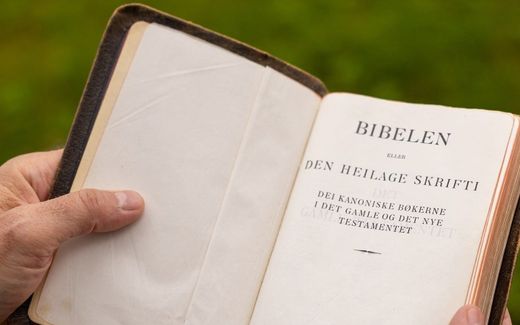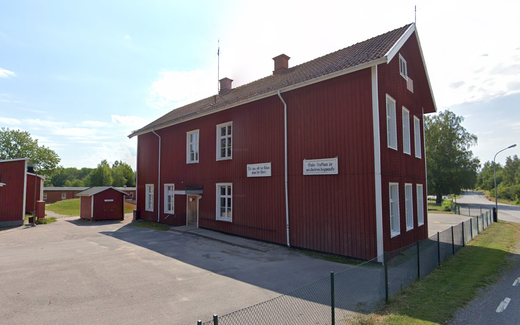No general applause for new Norwegian Bible translation

The Norwegian Bible Society is working on a new translation. The first published texts do not convince everybody. Photo Bibel.no
Northern Europe
Even before its publication, the new Bible version in Norway attracts attention. Some choices reflect a different taste. But there is debate about a “theological shift” as well.
The Norwegian Bible Society will publish the new translation in 2024. Most attention goes to John 3:16. In Norway, this verse is called “The Little Bible” (“Den lille bibel”), because all of the Biblical message about sin and grace is in it.
God so loved the world that he gave his only begotten son, that those who believe in him should not perish but have eternal life.
This text speaks both about getting lost and getting saved. Because it talks about God’s love to save sinners, it is usually quoted at funerals. But the phrase that the unbeliever gets lost can arouse emotions on such occasions at a graveyard.
The present Norwegian translation says that the unbeliever “gets lost”. That will be replaced by “perish”. In English, this new wording does not sound odd. But in Norway, some theologians think it is a theological shift.
In Vårt Land, the theologian Glenn Wehus says that the new translation “can lead the mind for many in a completely different direction, namely annihilation (that is, an extinction after death)”, he writes. The present wording is much clearer; it directs to “an eternal suffering without God.”
The theologian Bjørn Eidsvåg, however, prefers the new wording precisely because of the theological shift he sees in it. “The notions of perdition and hell belong to another era. I am glad that they are less and less tainting the church’s most important message: that love is the greatest of all. That message completely loses its power if we see the loss as a mirror behind us. We may perish without love, but we are not lost”, he says, according to Vårt Land.
Paul as slave
Another issue that arouses debate is the fact that the Greek “doulos” will become “slave” everywhere. So, the apostle Paul will become “a slave of Jesus Christ”, instead of a “servant.”
The Norwegian Bishop Halvor Nordhaug says “this is an accident”, in Vårt Land. The answer that a footnote will explain the word, is not satisfying him. “Ordinary Bible readers do not delve into footnotes, and it is particularly problematic if this is to be read in a church room”, the bishop says. “You could say that it is up to the priest to explain what is in the word. Then I say, “good luck!”. It will take a significant part of the sermon time to explain what is a barbaric word in many Norwegian ears. When Paul, in the two letters, presents himself as a slave of Jesus Christ, it is also not following what he describes elsewhere in the letters: “to be a Christian is to be freed,” says Nordhaug.
Meat or man
Another text that attracts reaction is the phrase from John 1:14:
The Word became flesh and dwelt among us.
Vårt Land reports the vision of Andreas Viestad, celebrity chef and food writer. He says this wording associates meat and food, which is not what is meant.
An earlier version of the Norwegian Bible spoke about “flesh” as well, replaced by “the Word has become man” in 1978 and onwards. But the 2024 edition is going back. The translators, however, defend this translation of the Greek “sarx”.
Sensitive
The new Bible version does not only change “The Little Bible”; it contains changes around slavery, anti-Semitism and homosexuality as well. All these topics are sensitive in present-day Norway. But that does not influence the translation, says the manager of the translation work Jorunn Økland. Also, the new version will make clear that the Bible does not speak positively about same-sex relations. However, some Bible readers would have hoped that.
1858
The new Bible translation is a revision of the most used version from 2011. Parts of the Bible have been available in Norwegian from the 13th century onwards, parallel with Danish translations. However, the first translation of the entire Bible into Norwegian did not come until 1858.
Related Articles







